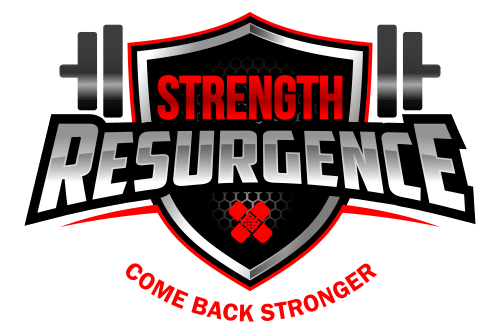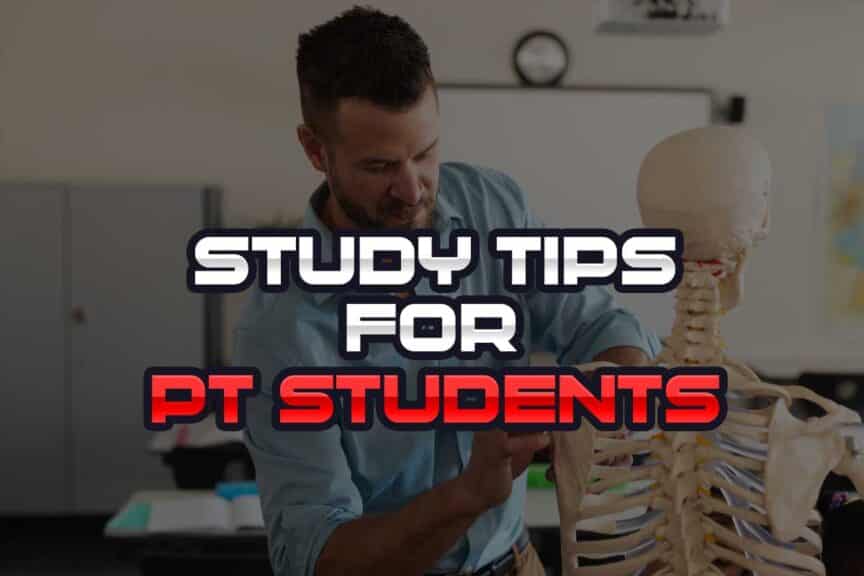When it comes to studying while you make your way through physical therapy school, many little tips and tricks can make the process much easier for students. Within this article, I’ll share 25 of my own personal tips that you can consider using for your academic studies, which will hopefully help you smash school and even have a little fun along the way!
The best study tips for physical therapy school are those that help you save time and energy with learning, memorizing, and implementing material that PT students must know. Each tip should be individualized and incorporated into your academic pursuits based on your own needs.
Coming into my PT program, on paper, I probably looked pretty average. But I was hungrier than any other student whom I came across. The result of my hard work and relentless studying was graduating near the top of my class with an advanced certificate in orthopedics and passing my NPTE board exam three months ahead of the standard timeline. It wasn’t because I’m academically gifted, but rather because I mastered the ways of studying that worked best for me. I racked up many personal lessons and tips along the way, which I’m now happy to share with you.
If you want to learn the specifics of each of the tips that I cover within this article, be sure to keep on reading!
ARTICLE OVERVIEW (QUICK LINKS)
Click/tap any of the following headlines to instantly jump to that section of the article!
Tips 1 – 5 (the basics)
Tips 6 – 10 (what a wise student does)
Tips 11 – 15 (getting good at what you do)
Tips 16 – 20 (some “secret sauce”)
Tips 21 – 25 (what others don’t tell you)
Remember that it’s important to tweak and individualize any of the following tips to ensure that they work best for you! Don’t be afraid to take a concept or insight listed below and make it unique to your own needs or situation; the more you can customize these study tips, the more successful you’ll likely be!
Tip 1: Stay organized
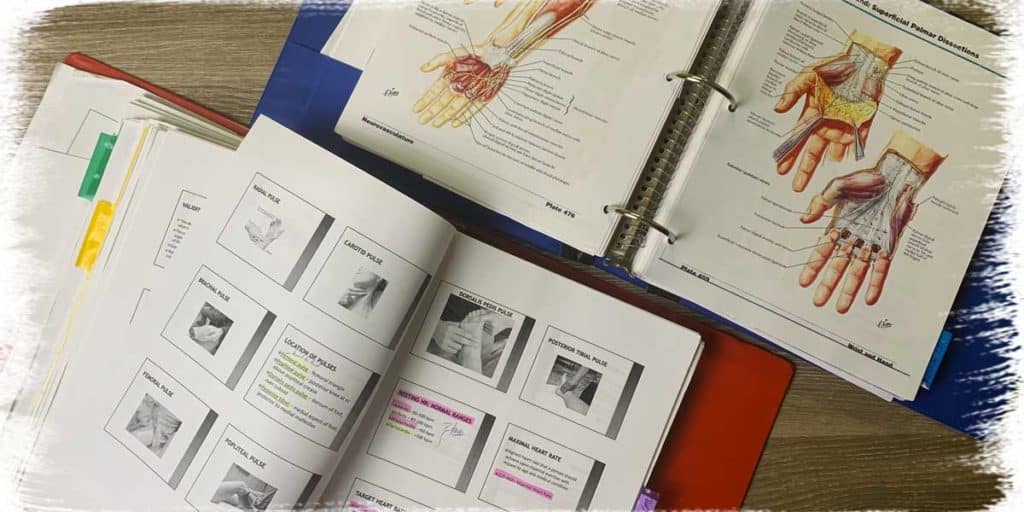
Unsexy advice, and likely some that will make you roll your eyes. But just so we’re clear:
PT school moves fast and piles on a lot of material to learn in very short periods of time. If you can’t stay organized and on top of things, you’re going to be riding the struggle bus throughout your program (if you don’t get booted out). This is going to make for a very stressful and lousy academic experience.
Stay organized not only with your academic material but also with your commitments and activities outside of school. You need to be organized with both. If you aren’t, a lack of organization with one can throw off the other. However you choose to stay organized is up to you; just make sure it works for you. I want you to enjoy your academic experience and thrive, not be a hurting unit that struggles to stay above water each and every day.
Tip 2: Stay ahead as much as possible
A good goal to shoot for with each of your courses is to always stay one lecture ahead. In other words: you should never head into a lecture or lab without having briefly examined and studied the topics and concepts that will be covered for that day’s lesson.
This is not to say that you should spend hours doing so for each lecture, nor that you need to fully understand every concept before the class (or lab) begins. Still, if you have a basic heads-up on concepts, topics, terminology, etc., that will be covered in the upcoming lecture, you’ll lock down those topics and concepts quicker and more thoroughly when they’re presented in class. You’ll also know at which points you may need to pay closer attention to within the lecture for trickier concepts or topics that you may not have fully comprehended when quickly examining the material beforehand.
Related article: Six Study Tips for PT Students That Work For Any PT Course
It may not always be feasible to do this. Still, the more often that you can, the easier and more efficient your study process will likely go after the lecture. You’re in grad school now — time to take your initiative to new levels (assuming you want to become the best academic version of yourself possible).
Tip 3: Expect to make sacrifices
Even if you’re academically gifted, you will still stay busy. Even the two classmates in my cohort who graduated our program with a 4.0 GPA stayed just as busy as the rest of us mere mortals when it came to completing assignments, writing papers, studying for written exams, studying for practical exams, etc.
As a result, it’s a good idea to get into the mindset of knowing and accepting that you’ll have to make various sacrifices in certain areas of your life if you want to find the study time you need, the time you need to work on and complete assignments, and so on.
It won’t last forever, but remember that the truckloads of assignments and materials coming your way will warrant the acceptance of sacrifice to find the time required to give your best time and efforts with studying, learning and completing what is required of you.
Tip 4: Carve out dedicated study time in your schedule
Piggybacking off of that last tip, it’s a good idea to block off specific times in your day or week to get your studying and assignments taken care of. Even the best-laid intentions can fall by the wayside when it comes to meeting your study-time goals.
Related article: Students: Here’s How to Dominate Studying at Home For Major Success
Unexpected events happen, distractions are abundant, and it can be all too easy to blow off what you were thinking would be an otherwise ideal time to get some studying done for a given day.
By blocking off portions of time each day or on certain days and times throughout each week, you’re much less likely to forfeit that block of time or let someone try to “steal it from you.” It’s also a great way to give yourself permission to say “no” to those who try to distract you or steal your time for any other reason.
Get a schedule, figure out the most ideal times to study and pencil them into that schedule. By doing this, you’ll hit more study sessions each week and will likely fall into better, more consistent study rhythms that can maximize your productivity and overall learning with your required material.
Tip 5: Always be studying your anatomy
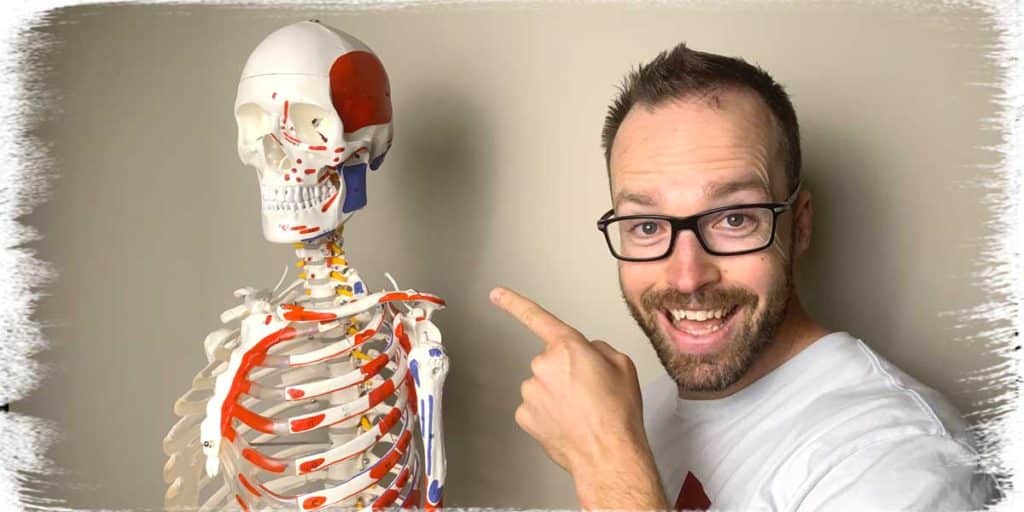
Fact: the better you are at knowing your anatomy, the easier time you’ll have in PT school. Now, I can’t back that fact up with objective proof. Still, I can back it up with my own anecdotal evidence, along with hundreds of other physiotherapists who, having gone through school, can attest to this as well.
You’ll need to draw on some form of anatomy for most of your classes — even if it’s indirectly. The better you know anatomy, the easier it is to answer questions that directly pertain to anatomy. AS a result, the easier it is to fill in the gaps to help you arrive at the correct answer for a non-directly-related anatomy question.
Besides, the better you know your anatomy, the better you’ll do for your board exam and with clinical practice once you move on to working in the clinic.
Related article: Why You Should Take Anatomy As Seriously As Possible in PT School
Review a bit here and there whenever you feel that you can’t remember an origin, insertion, innervation, landmark, etc. Doing so will make school way easier and set you up for clinical excellence.
Tip 6: Take advantage of awesome anatomy and PT apps
We live in a world where there’s some seriously awesome technology literally at our fingertips. As a student, you’d be wise to take advantage of this, as this technology can be an absolutely massive factor that swings your studies in your favour. While some of it may require spending a few dollars, there’s plenty of great free resources that are great to use.
A few of my favorite include:
- Complete Anatomy by 3D4Medical (they also have Essential Anatomy 5, which is also great)
- Biodigital Human, which is a free online 3D anatomy platform similar to Complete Anatomy
- Scorebuilders Question of the Day. This app asks you one NPTE board-style question each day. As you go on, it keeps track of how you’re doing overall. It’s completely free and is a great way to make sure you’re on the right track with passing the NPTE board exam.
Related article: Six Helpful Apps to Help PT Students Achieve More in School
Tip 7: Get a used NPTE book at the start of your program
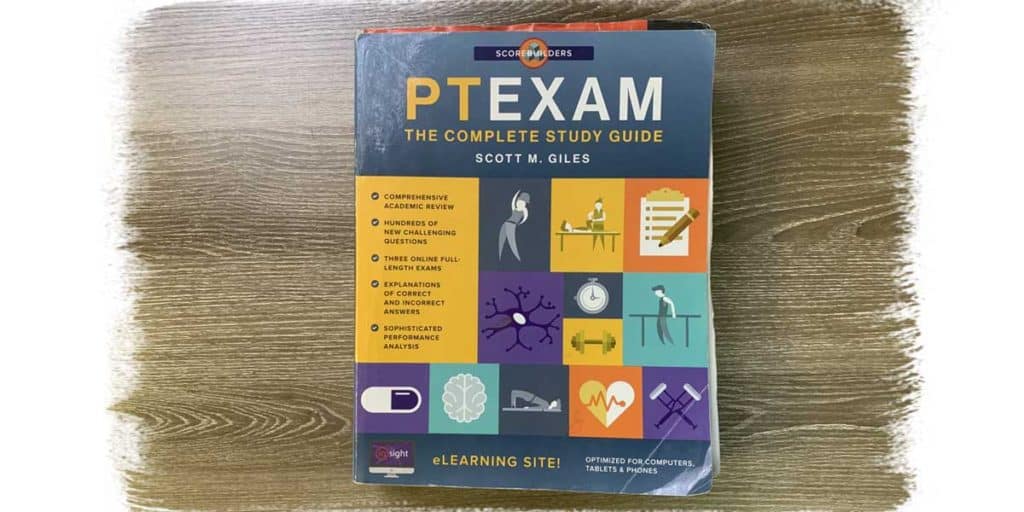
NPTE (National Physical Therapy Examination) prep books exist as a means to provide you with a consolidated study resource of all the material you’ve learned over the past three years as you study for your licensing exam. While most students only purchase one of these books at the tail end of their schooling, it can be an insanely beneficial move to pick up a used NPTE book (no need for a brand new one just yet) at the start of your program.
For this, consider either Scorebuilders or TherapyEd, as these are two of the “heavy hitters” in the NPTE prep world.
This will provide you with a consolidated resource that you can easily reference for each of your courses as you work your way through every course for each semester. All of the individuals who I’ve helped to mentor through physical therapy school seem to really benefit from this, and you likely will too!
Check out my video if you want to learn more of the specifics:
Tip 8: Work hard. Rest hard. This is a marathon — not a sprint
Hard work is awesome, and it certainly works, but you need to know when to work hard and when to rest hard. Resting hard isn’t a license to slack off more than you need to, but it is a license to “recharge your batteries” in healthy ways after mentally pushing so hard with your studies.
Take time throughout each week to get the downtime you need and do the activities you enjoy. Just be disciplined with listening to the inner voice that tells you when it’s time to get back on the grind. It can be a delicate balance, but you’ll no doubt be able to fine-tune it as you work your way through your program.
Related article: How PT Students Can Manage and Reduce Stress in School
Don’t burn yourself out. You’ll need rest periods. Just make sure they’re appropriate in length and truly warranted. If you can confidently achieve and maintain this balance, your academic performance will climb upwards, and school will be a much more enjoyable journey.
Tip 9: Network with professionals throughout your time in the program
It’s worth getting to know other practicing professionals in the field of physical therapy while you’re currently in school. Other practicing professionals have been through the program/curricula that you’re currently going through. As a result, they can offer some profoundly valuable insight and wisdom that you’d otherwise be hard-pressed to find through any other means.
Get to know them and ask them questions about what they found to be the most challenging about their time in PT school, what they found to be helpful for studying and learning, and anything else along those lines.
This is an outstanding way to get to know some “secret sauce” when it comes to tips and tricks that can make life a lot easier for you while in school. After all, who better to gain insight and wisdom from than someone who has already gone through your current journey?
If you feel that you don’t have many (or any) professional connections, ask friends, family, or classmates if they happen to know someone whom they could put you in touch with.
Pro tip: Build a LinkedIn profile and start networking on the platform. LinkedIn is an outstanding way to meet and network with new, like-minded connections within and around the field of physical therapy.
Related article: Eight Important LinkedIn Tips for PT Students and New Graduates
Tip 10: Keep moving and exercising (it helps with learning)
Physical activity and exercise have been shown to enhance memory retention, but experiencing movement and exercise for yourself will better help you understand many concepts of functional anatomy, exercise physiology, and related disciplines than if you were to simply read about them in a book.
Being able to feel, experience, and tinker around with these academic concepts for yourself by using your own body will allow you to conceptually grasp your educational material and “fill in the blanks” through anecdotal experiences.
Play around with movement. Experiment with it. Put your body to the test. Always be moving because it will significantly foster better learning.
More eloquently put: the more familiar you are with feeling and experiencing movements, exercises and activities with your body, the more things will naturally make sense in the classroom regarding principles of movement, exercise and physiology.
Yes, it’s doable, and yes, it’s incredibly important to do so. If you’re not sure how to go about this, check out my YouTube video where I break it all down:
Tip 11: Use your professors’ office hours
The available office hours that your professors keep are kind of like the “free” space on a bingo card — if you don’t use it, it’s because you don’t know what you’re doing.
In case you’re unaware, your professors for your courses each semester will have available office hours for which you can meet with them and get their help or expertise on any of the contents for the curricula they’re teaching you. It would be prudent of you to take advantage of these office hours if you are struggling with any coursework or if you’re committed to staying on top of the course material as best as possible.
This is something that I did routinely throughout PT school, making sure I knew all of the curricula currently being presented in class, and that was to be coming down the pipeline in weeks ahead. It’s one of the many reasons that I attribute to crushing PT school. I would highly encourage you to do the same.
Tip 12: Find a study style that works best for YOU
“It’s not stupid if it works” was a phrase I routinely reminded other classmates of throughout our academic days when it came to studying. We all study and learn in different ways, and no matter how unconventional or unique your study style may be, it’s worth it if it works.
Sure, try to always optimize and refine your study style so that it’s as efficient and practical as possible, but at the end of the day, if you have a study method that works — no matter what others may think or say — it’s worth keeping.
I often studied incredibly early in the mornings, frequently at what others would consider to be ungodly hours, but it worked for me. There was a 24/7 computer lab on campus for students, and I’d be there when no one else was so that it was quiet, non-distracting and peaceful. I’d get a couple of hours of studying in each morning before our 8am classes when my mind was fresh, and it just worked for me.
Others often thought it a bit strange, but I liked it, and my grades were proof that it worked. So, I took it and ran with it! Find what works for you and do the same!
Tip 13: Remember that your GPA isn’t everything
While you need to stay above a certain minimum GPA to stay in your program, it’s important to remember that GPA isn’t everything. Unfortunately, too many students wrap their entire identity up in this erroneous concept.
The truth is that while a good GPA tends to signify greater success with certain aspects of school, such as having less academic stress and passing your NPTE board exam, there’s a LOT more that goes into being a successful student (and a successful clinician after that).
If you want to know the specifics of what a successful PT student should focus on while in their program, watch the following video of mine, where I break down many essential details that you should undoubtedly be aware of.
Tip 14: Don’t major in the minutia (study the big-yield topics)
There are ten million individual, little things that you’re going to have to learn while in PT school, and there are about ten thousand general concepts that contain those individual things. (The numbers are arbitrary, but you get the idea.)
When in doubt, study the underlying concepts of the individual details that you’re required to know. When you prioritize studying concepts, many of the individual pieces that exist within the concept will come along for the ride. This is often referred to as the Pareto principle, where approximately 20% of the inputs yield a whopping 80% of the outputs. This is where you’ll likely want to focus much of your time.
Once you’re really on top of things, you can then go back and study the other 80% of little things that yield the additional 20% of the results. But always make sure you understand the “big picture” before focusing your time and energy on the tiny, individual details.
Tip 15: Get into the labs as much as you can
It’s pretty easy to get sick and tired of spending all of your time in a lab, such as for gross anatomy. However, these sorts of labs are the true goldmine for mastering the baseline knowledge required to successfully navigate through PT school.
Do your best to get into as many “open lab” hours as possible for your courses. These are the hours where you can head in to study in the labs that aren’t mandatory sessions. Do it until you get sick of it, take a deep breath and then keep doing it. It will require more sacrifice and discipline on your part, but you will be rewarded in beautiful ways.
Those who spend more time in the labs tend to do better in the classroom throughout the duration of the program. It gets exhausting to spend so many hours in labs, but remember: Labs and courses won’t last forever. The difference will likely be night and day in terms of your performance (and others will likely take notice) if you can stomach it to pump as many extra hours into your labs as possible,
It’s unsexy advice, but it works. Get in the lab as much as possible.
Tip 16: Ask your professors what the biggest challenges are in each course
This is a legitimate “secret sauce” tip right here. If you’re nervous about a course or really want to make sure that you have a heads up on what’s coming your way, ask your professor what the biggest challenges are for students who go through that course.
I did this plenty of times with my professors as I worked my way through school, and they often offered great insight that I would otherwise have no way of knowing.
They would let me know what topics or concepts tended to give students the most significant amount of difficulty or how certain portions of the course would keep students much busier than others.
This type of insight is a game-changer for increasing your academic and conceptual performance in a course.
Your professors will also likely delight in your mindset of wanting to know what’s on the horizon for challenges and the like, as this is the mark of a student who is genuinely committed to getting the most out of their studies and ensuring as much academic success as possible.
Tip 17: Ask your professors if they have any resources they recommend
Another great question to ask your professors is if they know of, and can recommend, any specific study resources or materials that can make the course materials less confusing, less overwhelming, etc.
Remember, many of these professors have been teaching this material for years upon years, which means they’re likely to have learned of some potent and helpful resources along the way.
As an added bonus, you can have peace of mind knowing that any resource they recommend is very likely to be reliable and specific to the material you’re going over in that particular course.
Professors love to help, and they love it when you show ambition by doing all that you can to maximize the studying and learning process for their courses. So, don’t be afraid to ask them if they know anyone or anything that they can point you towards to make life easier and more efficient for the specific courses they’re teaching.
Tip 18: Don’t ever buy brand new textbooks

Most of your professors will likely say the same thing, and even for the few who don’t, there are still likely ways around doing so.
Most academic textbooks offer trustworthy information that is in line with the curricula that you’re learning. But you can’t study this material off of the pages if you don’t have the book. This is where used textbooks and renting textbooks from your school’s library come into play.
The only exception is to buy a brand new NPTE prep book at the end of your program (buy a used one at the start). You’ll want a new one so that you can access the practice exams that are included with a new book.
Aside from that, ask your friends if they have the textbook that you need for studying. Or rent it from the library or just buy a used version for dirt-cheap. Your courses are going over entry-level PT knowledge, so you don’t often (if ever) need the most up-to-date information, as entry-level curricula doesn’t change much.
Related article: What are the Best, Most Helpful Textbooks for PT School?
Save yourself the money while still giving yourself access to the study materials that you need. There are ways to learn the material without a brand spanking new book, trust me.
Tip 19: Don’t be afraid to use rote memorization
It’s always good to have “hacks” and other great ways to memorize information and material a bit quicker or more effectively. However, sometimes things will come down to brute-force memorization, and that’s just fine.
There will be times where nothing will likely work as effectively as rote memorization — the least fun and most unsexy form of studying that likely exists. But, if it works…it works.
Just be sure to find a form of rote memorization that works for YOU. It can be flashcards (virtual or physical), writing things out on a sheet of paper over and over, or even writing it down on a whiteboard, erasing it, and writing it all out again (the former always being my preferred technique).
While plenty of material in PT school will lend itself nicely to fun or unique study methods, some material, such as anatomy and neuroanatomy, just comes down to brute-force memorization. Don’t sweat it if this is the case; just gather the discipline required to grind it out and remember that it won’t last forever.
Tip 20: Know when to study with others and when to study solo
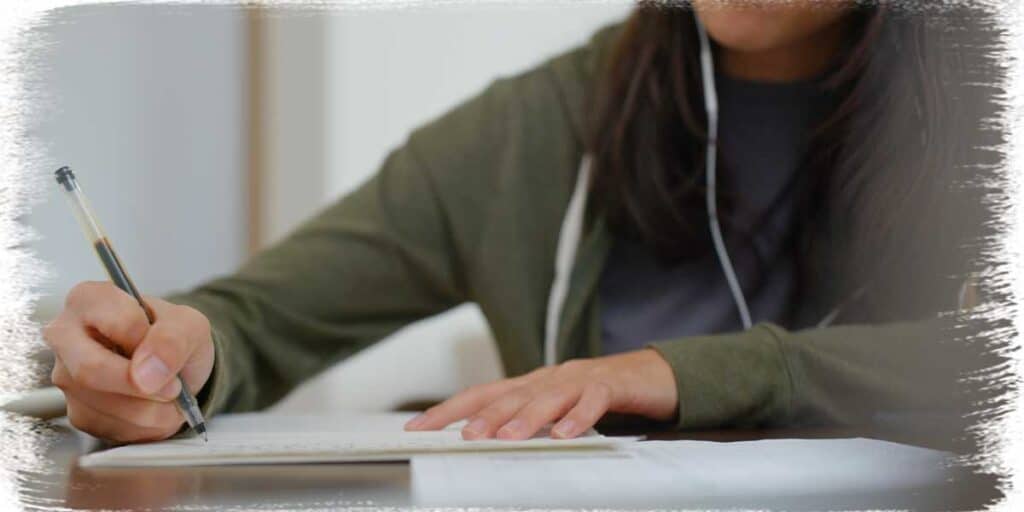
I’m a firm believer that there are times when it can be pretty advantageous to study with others or in groups, and times when it’s best left to flying solo for your studies. The frequency for which each of these is appropriate for you will vary from one individual to the next, but the underlying principle is the same.
Having others around when you study is a great way to get questions quickly answered that you may have, and it can be a great way to be enlightened as to what you may need to study more. You can quiz each other and clarify concepts and topics to one another, which can absolutely be invaluable.
Conversely, often it can be distracting to have others around when you’re trying to take in and digest material for yourself. If any of your study partners aren’t focused and dialled in, you can find your study session getting derailed by one distraction after another.
Don’t be afraid to let classmates/others know that they are invaluable as a source of help for your study success and that there are times when you may need to be left on your own. Most students benefit from this combined study style. How much of each you specifically need will be left up to you to figure out. Still, once you find the ideal ratio, you’ll likely be rockin’ some great study sessions on a regular basis.
Tip 21: Take ownership of your grades and performance
If you always want to retain a sense of control while going through a challenge, you need to take ownership of your performance. Once you do, you have the power to fight back however you need, whether it’s doubling down on your study efforts, finding individuals who can help you, or anything of the like.
If you place full blame on others for your performance, you resign any and all control for how you can remedy the situation. If something is truly out of your control, that means you don’t have any ability to fix it.
If you need a great book to read that elaborates on this in detail, check out Jocko Willink’s book Extreme Ownership. It will show you the importance of owning your situations and the power that it will provide you with for figuring out how to better your situation, be it in school or in life.
Tip 22: Accept that there will be times when studying is frustrating
While there are the “chosen few” of students here and there who never have any major issues with studying the plethora of material in PT school, most students will run into some struggles and frustrations at least once, if not a handful of times throughout their program (and, unfortunately, some struggle all the way through).
Accepting this as a fact is a good starting point for building a seriously resilient mindset and seriously robust study tactics. When you can accept the fact that there will be unpleasant stints along the way of the journey, they will not only sting less when they arrive but you will also be prepared for how to fight back.
Any fighter who steps in the ring against an opponent accepts that they will be getting punched and hit during their fight — but they are also prepared to keep fighting back nonetheless. This is precisely how you need to shape your mentality for the challenges of school (and clinical practice thereafter).
Struggle — and how we respond to it — is one of the many things in life that define our individual character. When you accept that it will rear its ugly head at some point, you won’t feel powerless. Instead, you’ll be prepared to deal with it in effective ways if you’ve appropriately planned to do so.
So, accept it and know that you’re greater than what will stand in your way during those moments.
Tip 23: Teach others to help lockdown concepts and knowledge for yourself
If you’re wanting to really make sure that you have your knowledge of specific material on lockdown, teach it to others! Helping other classmates or students not only feels highly rewarding, but it’s also the perfect way to make sure you truly know your stuff.
This doesn’t mean that you must fully understand it to teach it, quite the opposite, actually. As long as you know a bit more than the individual you’re helping, you’ll quickly identify your own weak spots, which will help you learn more of the material that you need to know as well.
I did this for a few of our courses in PT school; I had a lot of sessions in different semesters where I helped classmates with concepts that I had a strong background in (exercise physiology, rehabilitative exercise, etc.). It always helped to identify my own weak spots and reinforced my own confidence with the material I was helping them to understand.
Find someone who could benefit from what you know and do your best to teach it to them! Doing so will truly help both of you!
Tip 24: Build an ongoing resource list that you can always access
Three years of learning and studying material is quite a lengthy and often arduous-feeling process. And at the end of all your curricula, you have to make sure you know everything for your NPTE board exam.
One of the best things that you can do to help yourself throughout this ongoing process is to have an ongoing “resource list” that you constantly add to whenever you come across a valuable bit of information. It can be a list you make on a computer or build in a physical notebook. Find what works best for you.
Your resource list can include everything from YouTube Channels to helpful websites, books, journal articles, professional contacts and anything else that will help you out along the way.
It’s one thing to find great, helpful resources, but it’s another thing entirely to be able to access them at any point you may need. If you really want to feel like you are in the driver’s seat when it comes to your studies, build a lengthy, customized list that provides you with specific information for where and how to access that information whenever you need it.
As a personal example: I always built my resource lists within Excel and then hyperlinked everything to the individual YouTube video, journal article, etc., that I would need to access. The end result was massive, compartmentalized lists (organized by subject) that I could pull up and instantly click on whenever I needed to. This was one of my favourite study strategies that I used in PT school.
Tip 25: Never lose sight of your “why”
Above all else, when it comes to studying and grinding hard in PT school, never forget why you started. When you can always rely on your “why,” it will fill your tank in ways that make your continued efforts with studying manageable and meaningful.
“He who knows his why can bear almost any how,” as the old saying goes. When your spirit feels tired and weary from studying, or you feel like you’re struggling to keep your head above the academic waters, cling to the reason(s) why you chose to become a physical therapist. They will act as a compass for helping you continue on the right path and as nutrition for your depleted spirit.
Dig deep, remember your why, dwell on it and let it fill you with the strength to continue on with your studies.
Final thoughts
No two students do things the exact same way, especially when it comes to studying. There are plenty of ways to be successful in PT school (and for your career). The key is to make sure that you know the methods, tactics and strategies that work best for you; there is more than one way to acquire, learn and understand material.
Take the tips and strategies within this article and tweak them however you need to to make sure that you’re as successful as possible when it comes to getting through your PT schooling!
Grind hard. You’ve got this!

Hi! I’m Jim Wittstrom, PT, DPT, CSCS, Pn1.
I am a physical therapist who is passionate about all things pertaining to strength & conditioning, human movement, injury prevention and rehabilitation. I created StrengthResurgence.com in order to help others become stronger and healthier. I also love helping aspiring students and therapists fulfill their dreams of becoming successful in school and within their clinical PT practice. Thanks for checking out my site!
